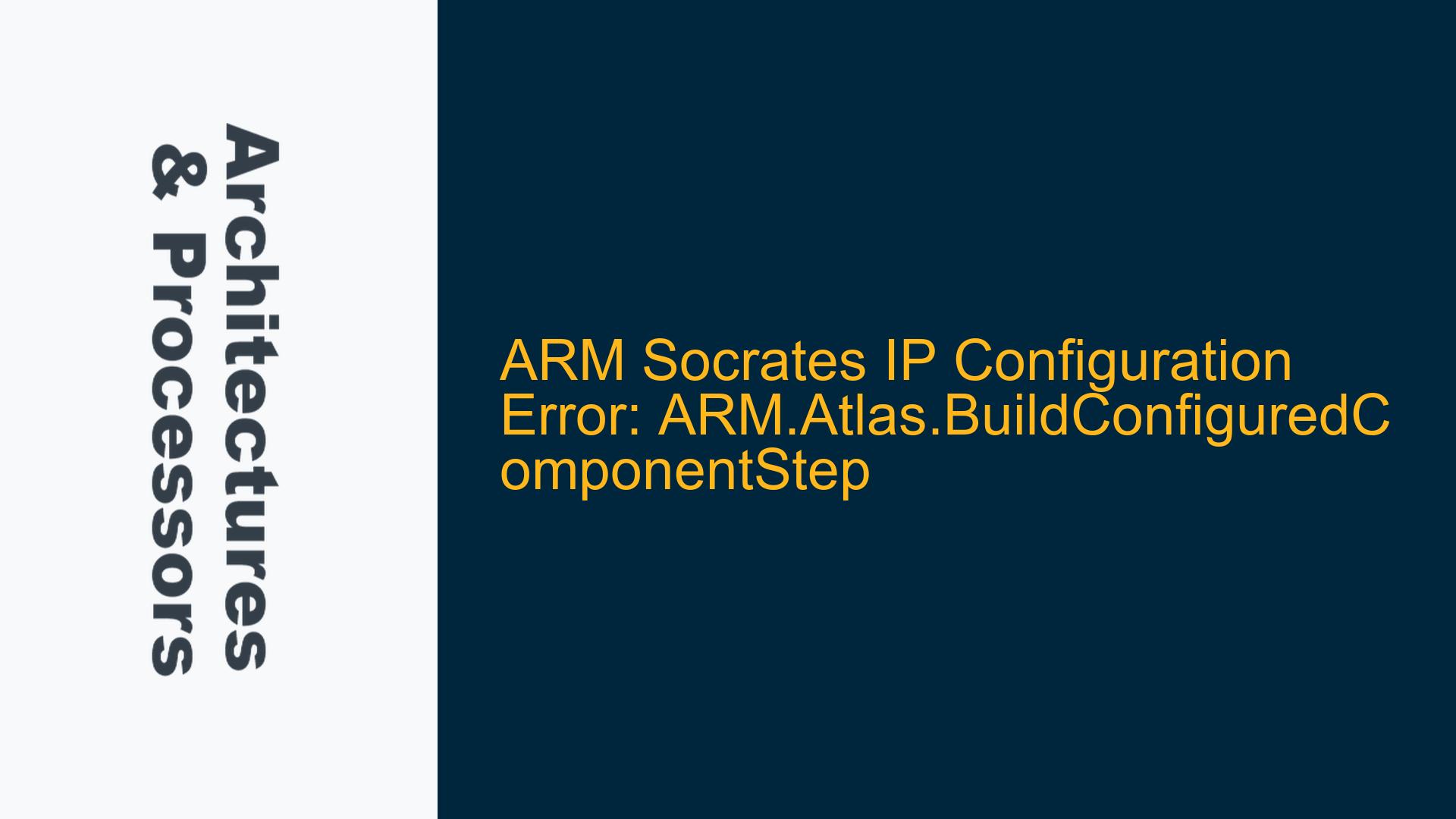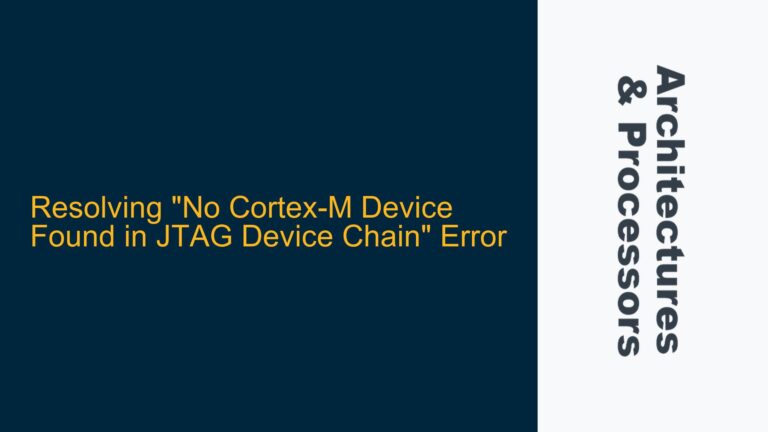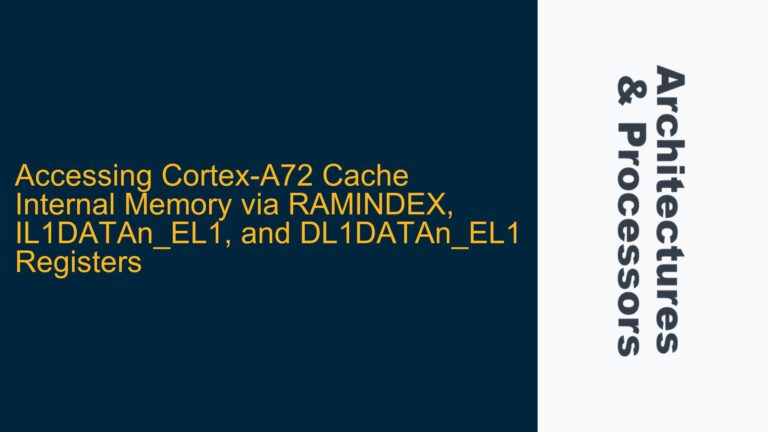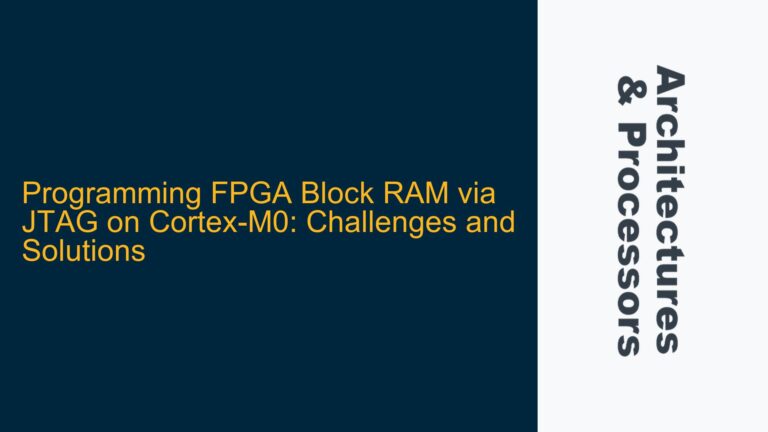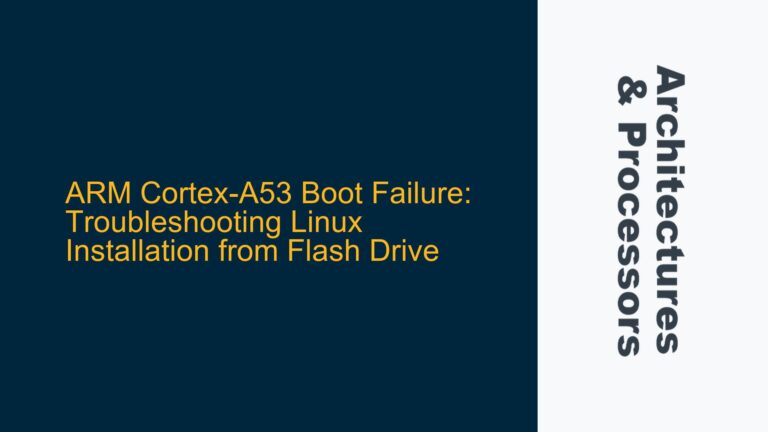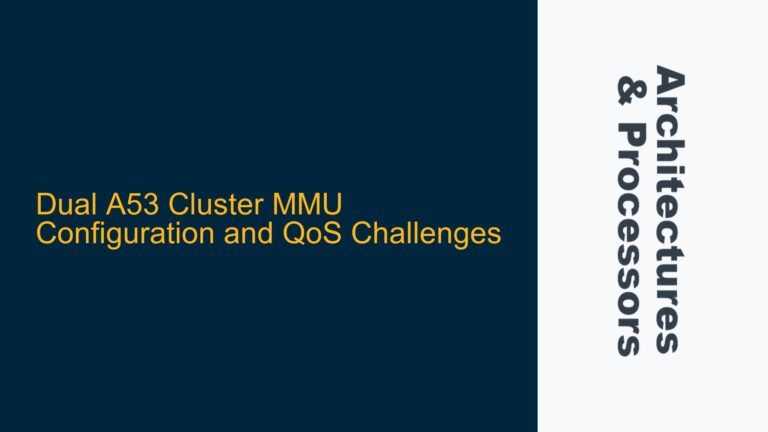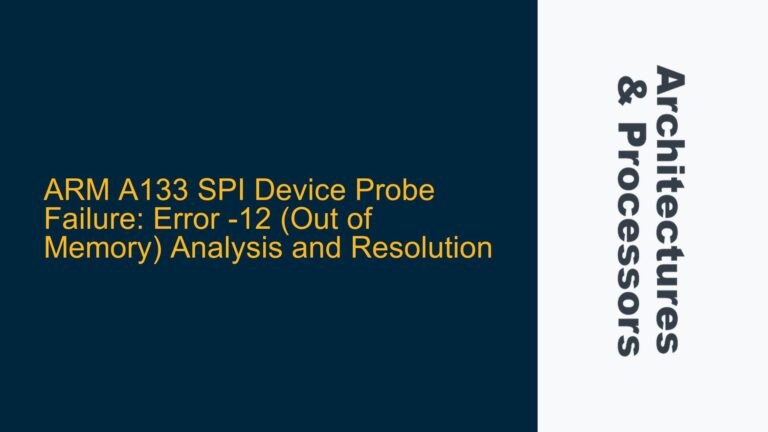Cortex-M0 Core Configuration Failure During IP Build
The error "ARM.Atlas.BuildConfiguredComponentStep" typically occurs during the build process of an ARM Cortex-M0 core configuration in the ARM Socrates tool. This error indicates that the tool is unable to successfully compile or generate the necessary files for the configured IP. The Cortex-M0 core, being a lightweight and energy-efficient processor, is often used in embedded systems, and its configuration in ARM Socrates involves several steps, including IP association, configuration, and build. The build process is critical as it translates the configured IP into a usable format for simulation or synthesis.
The Cortex-M0 core configuration in ARM Socrates involves several components, including the processor core, memory interfaces, and peripheral IPs. The build process integrates these components into a cohesive system. The error suggests that there is a breakdown in this integration process. This could be due to misconfigurations, missing dependencies, or issues with the toolchain itself. Understanding the root cause requires a detailed analysis of the configuration steps and the environment in which the build is being executed.
The Cortex-M0 core is often configured with specific memory maps, interrupt controllers, and peripheral interfaces. These configurations are defined in the IP configuration step and are critical for the successful build of the core. The build process involves generating the necessary RTL (Register Transfer Level) code, simulation models, and synthesis scripts. The error "ARM.Atlas.BuildConfiguredComponentStep" indicates that one or more of these steps have failed, preventing the successful completion of the build.
Misconfigured IP Parameters and Toolchain Dependencies
One of the primary causes of the "ARM.Atlas.BuildConfiguredComponentStep" error is misconfigured IP parameters. The Cortex-M0 core has several configurable parameters, including the number of interrupts, memory size, and peripheral interfaces. Incorrectly setting these parameters can lead to build failures. For example, if the memory size is set to a value that is not supported by the selected memory interface, the build process will fail. Similarly, if the number of interrupts exceeds the capacity of the interrupt controller, the build will not complete successfully.
Another potential cause is missing or incorrect toolchain dependencies. The ARM Socrates tool relies on several external tools and libraries to complete the build process. These include the ARM Compiler, simulation tools, and synthesis tools. If any of these tools are not correctly installed or configured, the build process will fail. Additionally, the toolchain dependencies must be compatible with the version of ARM Socrates being used. Incompatibilities between the toolchain and the ARM Socrates version can lead to build errors.
The IP association step is also critical for the successful build of the Cortex-M0 core. This step involves linking the configured IP with the necessary libraries and tools. If the IP association is not correctly performed, the build process will fail. The "Check Association" step is designed to verify that the IP association is correct. However, even if this step is successful, there may still be underlying issues that are not detected until the build process is initiated.
Resolving IP Configuration and Build Issues
To resolve the "ARM.Atlas.BuildConfiguredComponentStep" error, the first step is to verify the IP configuration parameters. Ensure that all parameters are set to valid values and are compatible with the selected memory interfaces and peripheral IPs. Pay particular attention to the memory size, number of interrupts, and peripheral configurations. If any parameters are set to unsupported values, adjust them accordingly and re-run the build process.
Next, verify the toolchain dependencies. Ensure that all required tools and libraries are correctly installed and configured. Check the compatibility between the toolchain and the ARM Socrates version. If there are any incompatibilities, update the toolchain or the ARM Socrates version to ensure compatibility. Additionally, verify that the environment variables are correctly set to point to the necessary tools and libraries.
The IP association step should also be re-verified. Even if the "Check Association" step was successful, there may still be underlying issues. Re-run the IP association step and ensure that all necessary libraries and tools are correctly linked. If the issue persists, consider re-installing the ARM Socrates tool and the associated IP bundles to ensure that all components are correctly installed.
If the above steps do not resolve the issue, consider enabling detailed logging during the build process. The ARM Socrates tool provides options for enabling detailed logs, which can provide more insight into the cause of the build failure. Analyze the logs to identify any specific errors or warnings that may indicate the root cause of the issue. Based on the log analysis, make the necessary adjustments to the IP configuration or toolchain setup.
In some cases, the build error may be due to a bug in the ARM Socrates tool or the associated IP bundles. If this is suspected, check the ARM support forums or contact ARM support for assistance. Provide them with the detailed logs and a description of the steps taken to configure and build the Cortex-M0 core. They may be able to provide a patch or workaround to resolve the issue.
Finally, consider using a different version of the ARM Socrates tool or the Cortex-M0 IP bundle. If the issue is due to a bug or incompatibility, using a different version may resolve the issue. Ensure that the new version is compatible with the toolchain and other dependencies.
In conclusion, the "ARM.Atlas.BuildConfiguredComponentStep" error during the Cortex-M0 core build process in ARM Socrates can be caused by misconfigured IP parameters, missing or incorrect toolchain dependencies, or issues with the IP association. To resolve the issue, verify the IP configuration parameters, check the toolchain dependencies, re-verify the IP association, enable detailed logging, and consider using a different version of the ARM Socrates tool or IP bundle. By systematically addressing these potential causes, the build error can be resolved, allowing for the successful configuration and build of the Cortex-M0 core.
